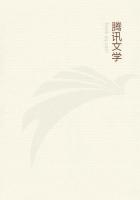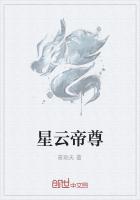According to the law of the circulation of commodities, the quantity of money must be equal to the amount of money required for circulation plus a certain amount held in the form of a hoard, which increases or decreases as the circulation contracts or expands, and serves especially for the formation of the requisite reserve funds of means of payment. What must be paid in money in so far as there is no balancing of accounts -- is the value of the commodities. The fact that a portion of this value consists of surplus-value, that is to say, did not cost the seller of the commodities anything, does not alter the matter in any way. Let us suppose that the producers are all independent owners of their means of production, so that circulation takes place between the immediate producers themselves. Apart from the constant portion of their capital, their annual value-product might then be divided into two parts, analogous with capitalist conditions:
Part a, replacing only the necessary means of subsistence, and part b, consumed partly in articles of luxury, partly for an expansion of production.
Part a then represents the variable capital, part b the surplus-value.
But this division would remain without influence on the magnitude of the sum of money required for the circulation of their total product. Other circumstances remaining equal, the value of the circulating mass of commodities would be the same, and thus also the amount of money required for that value. They would also have to have the same money-reserves if the turnover periods are equally divided, i.e., the same portion of their capital would always have to be held in the form of money, because their production, according to our assumption, would be commodity production, the same as before. Hence the fact that a portion of the value of the commodities consists of surplus-value would change absolutely nothing in the quantity of the money required for the running of the business.
An opponent of Tooke, who clings to the formula M---C---M', asks him how the capitalist manages always to withdraw more money from circulation than he throws into it. Mind you! The question at issue here is not the formation of surplus-value. This, the only secret, is a matter of course from the capitalist standpoint. The sum of values employed would not be capital if it did not enrich itself by means of surplus-value. But as it is capital by assumption, surplus-value is taken for granted.
The question, then, is not where the surplus-value comes from but whence the money comes into which it is turned.
But in bourgeois economics, the existence of surplus-value is self-understood. It is therefore not only assumed but also connected with the further assumption that a part of the mass of commodities thrown into circulation is a surplus-product, hence representing a value which the capitalist did not throw into circulation as part of his capital; that, consequently, with his product the capitalist throws into circulation a surplus over and above his capital, and that he withdraws this surplus from it.
The commodity-capital, which the capitalist throws into circulation, has a greater value (it is not explained and remains obscure where this comes from, but the above Political Economy considers it a fact) than the productive capital which he withdrew from circulation in the form of labour-power plus means of production. On the basis of this assumption it is evident why not only capitalist A, but also B, C, D, etc., are always able to withdraw more value from circulation by the exchange of their commodities than the value of the capital originally and repeatedly advanced by them. A, B, C, D, and the rest continuously throw a greater commodity-value into circulation in the form of commodity-capital -- this operation is as many-sided as the various independently functioning capitals -- than they withdraw from it in the form of productive capital. Hence they have constantly to divide among themselves a sum of values (i.e., everyone, on his part, has to withdraw from circulation a productive capital) equal to the sum of values of the productive capitals they respectively advanced; and just as constantly they have to divide among themselves a sum of values which they all, from all sides, throw into circulation in the form of commodities representing the respective excesses of the commodity-values above the values of their elements of production.
But the commodity-capital must be turned into money before its reconversion into productive capital and before the surplus-value contained in it is spent. Where does the money for this purpose come from? This question seems difficult at the first glance and neither Tooke nor any one else has answered it so far.
Let the circulating capital of £500 advanced in the form of money-capital, whatever its period of turnover, now stand for the total circulating capital of society, that is, of the capitalist class. Let the surplus-value be £100. How can the entire capitalist class manage to draw continually £600 out of circulation, when it continually throws only £500 into it?
After the money-capital of £500 has been converted into productive capital, the latter transforms itself within the process of production into commodities worth £600 and there are in circulation not only commodities valued at £500, equal to the money-capital originally advanced, but also a newly produced surplus-value of £100.
This additional surplus-value of £100 is thrown into circulation in the form of commodities. No doubt about that. But such an operation does not by any means furnish the additional money for the circulation of this additional commodity-value.
It will not do to obviate this difficulty by plausible subterfuges.

